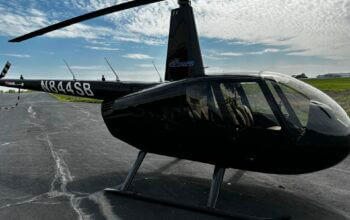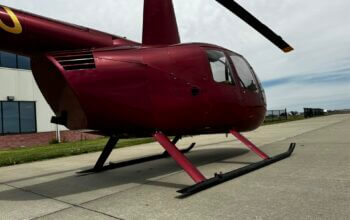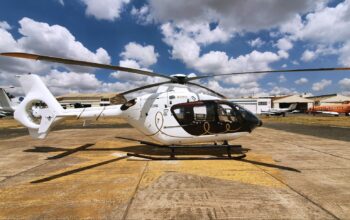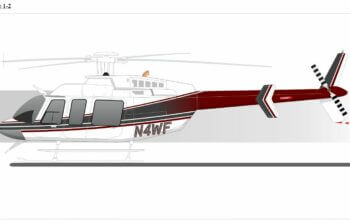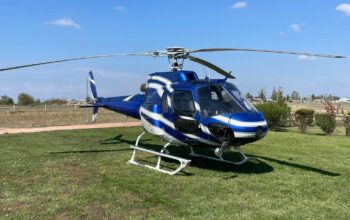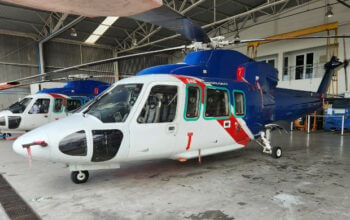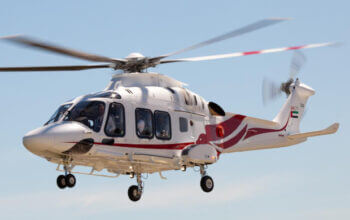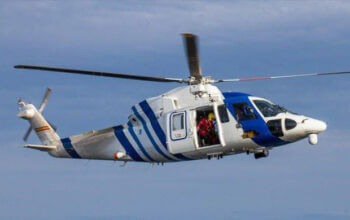Estimated reading time 5 minutes, 26 seconds.
Although business aviation is suffering in the midst of the COVID-19 downturn, industry analyst Rollie Vincent of JETNET iQ believes there are several “green shoots” heralding signs of recovery.

Speaking to more than 100 participants during the Canadian Business Aviation Association (CBAA) virtual annual general meeting on June 17, Vincent — who is president of Rolland Vincent Associates and the creator/director of JETNET iQ — said 2020 started off as a very good year but quickly tanked in mid-March with the onset of the global pandemic.
With commercial aviation in decline and not expected to fully recover for at least two years, he said opportunities exist for Canada’s 530 business jets and their operators.
“People are discovering business aviation more,” said Vincent, who speaks every year at CBAA’s annual convention. With access to real-time U.S. Federal Aviation Administration data, JETNET iQ has seen that on-demand aircraft charter activity is the first business aviation category to begin a recovery.
“That’s a very good sign. There was a deep trough in April, but data shows it’s bouncing back. We’ll go through a bit of a flat period, however.”
Although Vincent said there had already been signs of an impending market downturn, COVID-19 has made it much more pronounced. Business aircraft sales are down about 25 points in volume versus this time last year, with large cabin aircraft taking the biggest hit. In 2019, a total of 720 business jets were delivered. JETNET iQ is forecasting that about 600 units will be delivered in 2020. So far, only 103 were delivered in the first quarter.
Likewise, OEM backlogs – which had finally started to climb – are now down again, with US$32 billion in back orders recorded by the Big 5 manufacturers (Bombardier, Dassault, Embraer, Gulfstream, and Textron).
Overall, deliveries between 2020 and 2029 are predicted to be 6,333 units representing US$206 billion in value.
With global economies officially in recession, Vincent said buyers may now be reconsidering the purchase of a business aircraft. An ongoing JETNET iQ owner/operator survey consulted 100 Canadian organizations and found that other factors delaying an aircraft purchase include a decline in business activity, prohibitive purchase and trade-up costs, the inability to sell an existing aircraft and uncertainty about pending regulatory changes.
Canadian buyers said they are most interested in King Air, Challenger 350, PC-12, HondaJet and PC-24 aircraft, in that order. By contrast, Bombardier’s Challenger 350 was most desired by prospective U.S. purchasers, with the list rounded out by the G550, Falcon 2000, PC-12 and Citation CJ3/CJ3+.
The Canadian business aircraft fleet is unique, with three-quarters represented by light turboprop or jet aircraft. “Turboprop activity is the strongest in the market right now. It dropped, yes, but it’s more robust than others,” Vincent told CBAA webinar participants.
Another difference between the U.S. and Canada is that our economy is commodity-dependent, “and many folks in those sectors buy airplanes.” In addition, our weaker currency factors into a decision to buy a business aircraft.
JETNET iQ is carefully watching the relationship between business aviation and sustainability.
“It’s a real opportunity as we reset as an industry going forward,” said Vincent. “There will be scrutiny on our public image. Canadians are sensitive to this topic and there is more to be done for sure. Getting sustainable aviation fuels into the field is important. We can’t allow COVID to take over every headline and brain cell we have. This is a dramatic opportunity for bizav to step forward.”
In the post-COVID world, JETNET iQ predicts a positive outlook for charter and fractional operators, as well as MRO (maintenance, repair and overhaul) and FBO (fixed base operator) services.
“Canada-U.S. traffic is a huge opportunity. I think when you look at the Canadian GDP, about 60 per cent is geared to international trade. We all look forward to having that border (with the U.S.) open again,” he continued.
“It should be a relatively positive outlook for MRO – the dollar is attractive and talent is impressive. If the border can get back open we can bring work in again. Canada has a very good reputation for providing high quality work at good value.”
In addition, JETNET iQ is bullish on fractional ownership programs, with aircraft management services trending positively.
“Fractional is an industry full of quality,” concluded Vincent. “I think as people discover these programs where things are professionally flown and maintained, I can’t see anything but growth.”
Read Vincent’s industry update from 2019 here.
